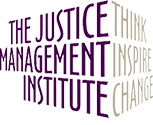Hypothetically, let’s say you go to your medical facility and they advise you that the medical professional you will see today is through medical school (accredited) and has decided not to take the licensing exam. The new medical practitioner will reduce the cost of your visit by 50%. What do you do?
Theoretically, he or she has completed all the necessary educational requirements, and you are seeing a medical professional for what you believe to be a sinus infection: Having recently been laid off and without insurance, you are conflicted about what to do.
This scenario couldn’t happen today, as this person would be charged with a criminal act of practicing medicine without a license. Still, I pose the situation to generate thinking about why we look for and seek out validation and credibility.
I started thinking about the subject matter as I completed my International Coach Federation (ICF) renewal application for my Professional Certified Coach (PCC) designation for another three years. I am willing to pay my application fee and meet the required ethics and continuing education units. To fulfill my initial designation as a PCC, I completed an ICF accredited coach-training program. Through that program, I received my certification as an executive coach. Confused? Let’s see if I can sort this out.
In an online Health Care Design Magazine 2011 article by Jennifer Silvas, a varied group of credentialing organizations convened to agree on a set of definitions. In Silvas’s article, the team provides a clear roadmap for why credentialing matters. The team decided that professional credentialing is a viable way to demonstrate proficiency in a field, and also identifies individuals who commit to his/her profession and ongoing development https://www.healthcaredesignmagazine.com/architecture/accreditation-certification-licensure-registration/.
The article also provides this useful description of standard terms and definitions.
Credential: An umbrella term used for many types of programs such as licensure, certification, accreditation, designation, and certificates. A credential is an attestation of qualification, competence, or authority issued to an individual by a third party with a relevant de facto authority or assumed competence to do so.
Credentialing: The process used to establish the qualifications of professionals, organizational members, or organizations and to assess their background and legitimacy to meet predetermined and standardized criteria. Individuals, organizations, processes, services, or products may be credentialed.
Licensure: A process by which a nongovernmental agency grants time-limited permission to an individual to engage in a given occupation after verifying that he or she has met predetermined and standardized criteria (usually education, experience, and examination). For example, Attorney at Law (J.D.) or Pharmacist (RPh)
Certification: A voluntary process by which a nongovernmental agency grants a time-limited recognition to an individual after verifying that he or she has met predetermined and standardized criteria. For example, ICF’s granting designation as a Professional Certified Coach (PCC)
Certificate: A voluntary process by which a person or organization acquires a document as evidence, or as written testimony, of status, qualifications, privileges, or the truth of something.
Accreditation: A voluntary (or quasi-mandatory) process by which a non-governmental entity grants a time-limited recognition or credentials to an organization after verifying that predetermined and standardized criteria are met.
For example, accredited colleges and universities.
Credentialing programs: Many organizations in the coaching field offer different types of credentials. For example, International Coach Federation (ICF), Center for Executive Coaching (CEC), Coach Training and Certification Program (CTI), and Center for Coaching Certification (CCC), to list a few.
Here’s the bottom line. Why care about licensing, credentialing, etc.? Although these designations cannot provide 100% guarantee, they do serve as a means of quality assurance and credibility. I have never been asked about my credentials and certifications. I do however offer up my education and certifications at the beginning of a coaching or consulting conversation. After that, it’s all about my personal and professional relationship with my clients. I lose their trust and confidence – no amount of designations and certifications can recover a damaged relationship.






